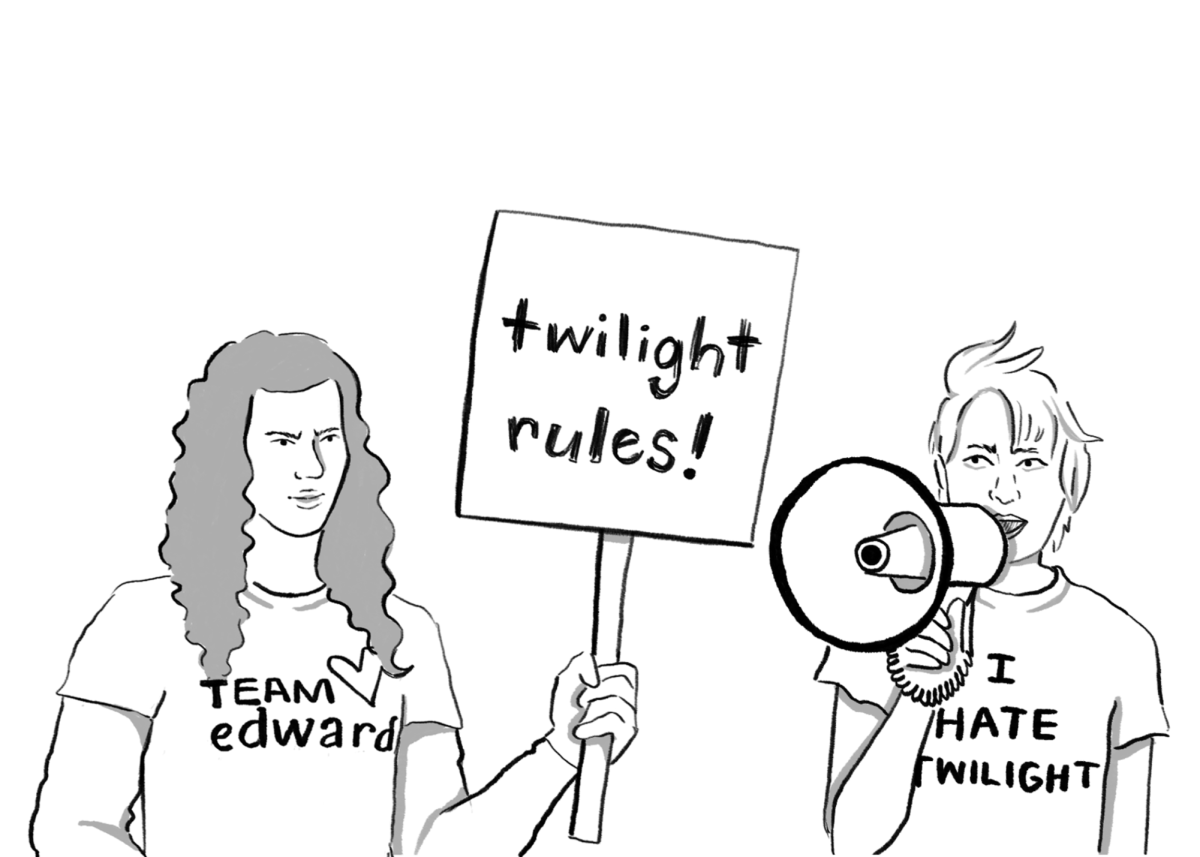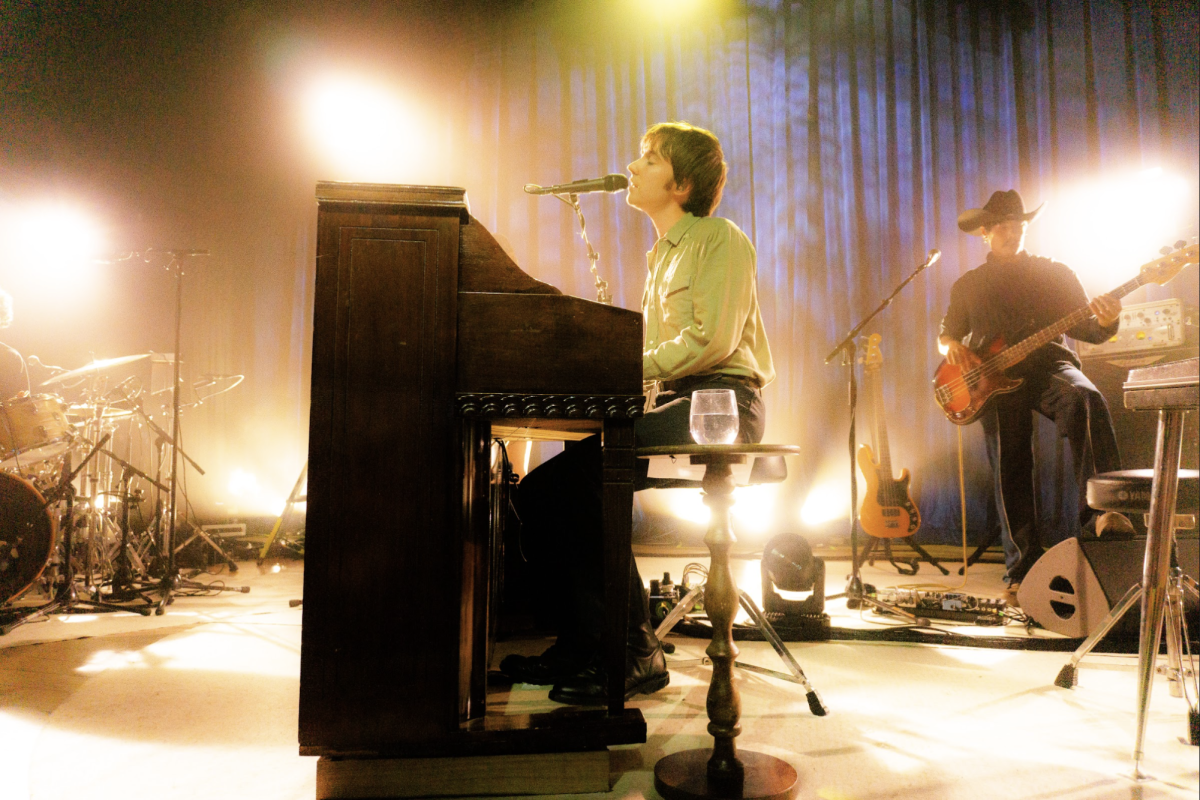“Phantom Thread,” Daniel Day-Lewis’ last feature film, weaves a deliciously intoxicating romance set in the 1950s’ fashion world.
“Phantom Thread” is not your average gothic romance. For one, it stars veteran actor Daniel Day-Lewis as Reynolds Woodcock, a man whose dressmaking skills are so revered that a fan tells him how she hopes “to be buried wearing one of [his] dresses.” It’s in a scene, made memorable by his interesting breakfast order, that he meets and charms a young waitress named Alma, wonderfully played by Vicky Krieps. He’s never been one to settle down, but perhaps it’s time that he lets someone crawl into the whirlwind world of his life’s work.
The chemistry between the unlikely duo flies off the screen in the forms of upturned lips, gentle touches, and warm laughter. As described by director Paul Thomas Anderson, the scene where Woodcock takes Alma’s body measurements, for example, feels like a sex scene without the sex. Passion burns as Woodcock molds this simple, modest girl into a model for the British elite, but conflict (and even hilarity) brews as both grow closer and unveil their true natures. Their relationship — and ultimately the movie — is a gradual but fascinating analysis of the human psyche, and the movie’s kicker is when the true dynamic between them clicks into place. One can only wish that the movie would dare to explore the more intriguing, if unconventional, dynamics of their relationship. Instead, the film draws itself out at times, creating an uneven pace that might put off a more impatient viewer.
Narratively, it may not be everyone’s cup of tea, but the movie is a technical marvel. The opening sequences are downright entrancing, leaving one to simply sit in cold, raw silence and awe throughout them. With minimal introductory dialogue, the task falls to Jonny Greenwood’s score to weave a beautiful, lush symphony of pianos and violins and thereby fill the narrative silence. It’s not often that a movie’s music becomes its defining characteristic and considerably lends itself to the overall plotline. It richly intermingles with the “Downton Abbey”-esque elegance oozing off the screen, creating an immersive viewing experience in which you feel that you are quite literally in 1950s London, living and breathing and moving amongst the models and dressmakers of the House of Woodcock.
As always in Paul Thomas Anderson’s films, the production is immaculately detailed. Light streams skillfully yet naturally upon the characters, basking their features in glowing illumination. Richly colored dresses and crisp suits are purposeful paint strokes against the backdrop of bustling restaurants and creamy-white rooms. In signature Anderson style, the camerawork in the movie is admirable too. It fluidly transitions between shots and doesn’t stick to a single type of camera angle or movement; there are moments where the camera bounces behind a driving car, looks up at flowing fabrics and hands, and tracks characters passing through crowds.
“Phantom Thread” marks Day-Lewis’ final installment in his filmography. According to W Magazine’s interview with Day-Lewis, the film’s production had taken an extreme toll on the method actor. Ten years ago, Day-Lewis and Anderson collaborated in the widely-acclaimed “There Will Be Blood,” and anticipation for yet another powerhouse collaboration between them ran high in the film community. The question: Is “Phantom Thread” as good as “There Will Be Blood”?
The short answer is, unfortunately, no. It lacks the ingenious brevity of “There Will Be Blood,” a flaw that may be attributed to its limiting subject. “Phantom Thread” may be Anderson’s most thematically simple work — but it’s admittedly still a mile above many other films. We’ve seen countless stories of an obsessive man whose life is driven by his work and who becomes infatuated with a beautiful muse, but on the other hand, we’ve never seen it done this well.
The narrative simplicity bleeds into the characters and thus the acting. Day-Lewis is a master of his craft — his three “Best Actor” Oscars attest to this — and he does a fine job with the material he is given in “Phantom Thread,” but the material itself isn’t challenging enough to bring the very best out of him. One almost feels underwhelmed, especially considering that this is his last work. Lesley Manville (Woodcock’s sister, Cyril) and Vicky Krieps stand their ground against Day-Lewis’ powerhouse perfomance, with Krieps going above and beyond in certain scenes. Her charming, sweet-faced disposition hides her character’s inner-workings well. Nonetheless, Day-Lewis is a formidable competitor in many award races. It only takes his eyes to brim with tears, or a wistful smile to cross his face, to make one feel the aching loneliness and insecurity buried deep inside his character.
When it comes down to it, “Phantom Thread” is truly a cinematic experience. It has the right dialogue, cast, score, cinematography, and design — though altogether they may not reach as high as they aim to be. But this film is a case in which the sum of the parts don’t matter as much as the parts themselves. If you want to see filmmaking at its near-best, watch “Phantom Thread.”
Grade: A-
Director: Paul Thomas Anderson
Starring: Daniel Day-Lewis, Vicky Krieps, Lesley Manville
Release Date: December 25, 2017
Rated: R
Image Courtesy of Focus Features














